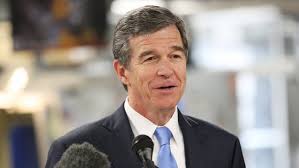North Carolina Governor Roy Cooper vetoed two bills on Friday, July 5.
Senate Bill 166
Senate Bill 166 aims to change building code rules, remove certain positions, and make various other adjustments.
“By limiting options for energy efficiency and electric vehicles, this legislation prevents North Carolina’s building code from adopting innovations in construction and mobility that save consumers money. This bill also removes subject matter experts from the building code council, including architects, active fire service, a coastal expert, local government officials, and public at large membership, and limits the knowledge and practical experience of the body tasked with ensuring all buildings are safely designed,” Cooper stated.
House Bill 690
House Bill 690 prohibits state agencies from accepting payments via a central bank digital currency, which does not currently exist. Read more about central bank digital currencies.
“Efforts are being made at the federal level to ensure standards and safeguards are in place to protect consumers, investors, and businesses that may want to make monetary transactions in digital assets. North Carolina should wait to see how they work before taking action. This legislation is premature, vague, and reactionary and proposes an end result on important monetary decisions that haven’t even been made yet. Instead of this bill, the legislature should have passed a budget to provide more funding for cybersecurity threats that actually exist now,” Cooper added.
Original Story at www.wect.com
